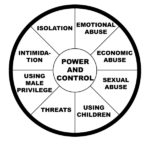
Everyday there seems to be new reports of confirmed cases of COVID-19. As of this writing there were 247 reported cases in California, according to the CA Department of public health. Of these cases, the LA Times is now reporting 54 of them are in LA County and that number seems to be rising. Although these numbers are still lower in comparison to other parts of the world, it has raised serious concerns in our community. The World Health Organization declared the COVID-19 outbreak a global pandemic.
In response to this outbreak, schools are transitioning to online instruction, events are being cancelled, and people are self-quarantining and working from home in an effort to stop the spread of this virus. The term “social distancing” is trending and panic shopping as well as stockpiling are triggering shortages of common items.
Like many of you, I’ve felt a bit concerned too. Just a few days ago I went to the store looking for hand sanitizer and there was none to be found. The cashier told me that one person came in earlier and bought the whole shelf. I also went to several stores looking for toilet paper only to be greeted by empty shelves with no certainty of when they would be restocked. News reports are showing people fighting over these basic supplies and stocking up on water. Anxiety is often contagious. Fearful messages can spread panic like an uncovered cough or sneeze. When faced with all this social contagion it can be challenging to manage anxiety when so much seems out of our control and others are panicking on a daily basis. However, taking action in the following ways can help you maximize what is within your control and help calm some of your fears.
#1 Get the facts – Resist getting caught up in rumors. There is a lot of misinformation circulating. It’s important to do your homework and make sure you are getting factual information through trusted sources and keeping this information in a healthy perspective. Holding on to what you know to be true, while also holding space for the unknown instead of speculating in fear, is key to maintaining a sense of balance and some peace. You may also want to talk to a trusted health professional to process your concerns. The Center for Disease Control offers up to date information on their website https://www.cdc.gov/ and so does the World Health Organization at https://www.who.int/
#2 Plan and prepare – Follow CDC recommendations by washing your hands frequently with soap and warm water for at least 20 seconds. Keep your hands and fingers away from your eyes, nose and mouth as much as possible. Wipe door knobs, telephones and frequently used items and surfaces with sanitizing wipes. Avoid large crowds when possible and don’t go out if it’s not necessary. Drink water to stay hydrated and get adequate rest. If you are experiencing discomfort or difficulty with breathing, or are experiencing flu like symptoms seek medical attention. And if stocking up on food and water for 2-4 weeks eases your mind, then go ahead and do it! Make a plan for school closures and childcare. Having a plan and feeling prepared can help alleviate stress.
#3 Practice relaxation – When you feel anxious and stressed, your brain floods your nervous system with hormones and chemicals all designed to help you respond to a threat. This leads to a flight or fight emotional response that can be very useful in keeping you safe from actual danger. However, when that emotional response is fueled by social contagion, a fear of uncertainty and horror stories that we tell ourselves, it can go into overdrive and override our cognitive brain functioning. That’s were relaxation comes in. Practicing relaxation helps regulate our emotional responses by calming the emotional brain and nervous system to help reduce emotional reactivity and activate our cognitive brain. There are several ways to practice relaxation. Here are a few:
• Deep breathing – Start by taking a few slow deep breaths. Inhale deeply and hold for 2 counts then exhale fully. Inhale and allow your belly to extend like a balloon filling with air then exhale as if you are letting all the air out of the balloon. You can even say to yourself the healthy things you are inhaling (i.e. peace, joy, love…) and exhale things you are releasing (i.e. worry, fear, anger…).
• Meditation – People have varying ideas about meditation, however, there are many different ways to meditate that are not at all tied to any particular religious practice. Simply spending some quiet time in mindful reflection and awareness of our breath, our bodies and emotional state has been scientifically proven to reduce stress, lower blood pressure and control your emotions. Try it for at least 10 minutes a day. There are several meditation apps available to help guide this practice (i.e. Calm, Headspace etc.).
• Grounding – This strategy helps to detach from emotional pain and keep you centered and feeling safe. In some ways it can be similar to meditation. There are 3 types of grounding. 1) Physical 2) Mental and 3) Emotional. You can practice physical grounding by jumping up and down, exercising or running cool or warm water on your hands. You can practice mental grounding by counting backwards from 100 to 2 by even numbers (i.e. 100, 98, 96…), solving puzzles or spending a few minutes identifying colors you see around you or sounds you hear. Emotional grounding can be practiced by looking at pictures that bring you joy, thinking of things that make you smile, playing with a pet or child.
• Self-Care – Some people falsely think of self-care as a luxury when in actuality it is ESSENTIAL. If you do not take care of yourself, you burnout, your immune system is compromised and you are unable to function in a healthy way. There are simple ways to practice good self-care like taking breaks, getting adequate sleep, eating healthy foods, exercising, going for a walks or listening to nature sounds or your favorite music. It’s also important to speak kindly to yourself and show yourself compassion. Speak comforting words to yourself like you might to someone you care about. How you nourish yourself is self-care and it helps to have a plan that you implement regularly.
• Gratitude – It’s easy to take simple things for granted sometimes. Keeping a gratitude journal can help you keep track of things that are good and for which you are grateful. Even when things seem bad, there is always something to be grateful for and something good. Even though our thoughts often overlap, it is very difficult to hold 2 opposing thoughts with the same focus at the same time. Therefore, the more you focus on gratitude the less likely you are to hold panic. Practicing gratitude daily helps you relax and slows the brains reactivity down by redirecting it towards more beneficial and peaceful thoughts.
The truth is that panicked and impulsive reactions can often be more problematic than the threat itself. Practicing these tools that are all within our control can help us navigate these turbulent times with a greater sense of calm to aid in making wise decisions. No one knows with all certainty what will happen in the future. But what we do know for sure is the sky is still blue, the sun is in the sky, and the earth is on its axis. We know there are experts and healthcare providers working hard on solutions. We have the ability to make choices and choose to follow CDC recommendations. We can choose to reframe our thoughts and use this as an opportunity to spend more time with our kids who may be home from school, or check up on the elderly.
We have the power to seek and speak truth, take positive actions and choose love and hope over fear. May you maximize all that is still good as we persevere through this human journey together.
Wishing you Wellness and Peace Always,
Lisa Locke, LMFT












